Introduction to Grooming Gangs
The issue of grooming gangs in the UK has garnered significant attention over the years, often interlinked with broader discussions about multiculturalism and social responsibility. These gangs, predominantly made up of men from minority communities, have been accused of systematically abusing young girls, particularly those from white British backgrounds. Investigative reports have revealed that the government and law enforcement agencies have, at times, failed to address these heinous crimes adequately, purportedly, to avoid accusations of racism.
Media Coverage and Tommy Robinson’s Role
Tommy Robinson, a controversial figure, has become synonymous with the fight against grooming gangs. He founded the English Defence League (EDL) in 2009, aiming to bring attention to the issue. His activism has sparked heated debates, with critics labeling him a thug and a criminal while supporters view him as a whistleblower. Robinson’s methods have been criticized, yet he has persistently highlighted the cover-ups surrounding these grooming gangs, leading many to question the integrity of the institutions meant to protect vulnerable children.
Institutional Failures
Reports from various towns, including Rotherham and Telford, have documented the extent of exploitation, with thousands of children affected. Investigations indicated that local authorities often ignored the plight of these victims due to fears of being labeled racist. For instance, a 2014 report revealed that around 1,400 children were exploited in Rotherham alone between 1997 and 2013. The reluctance to confront these issues has led to further victimization, with instances where police have been accused of complicity.
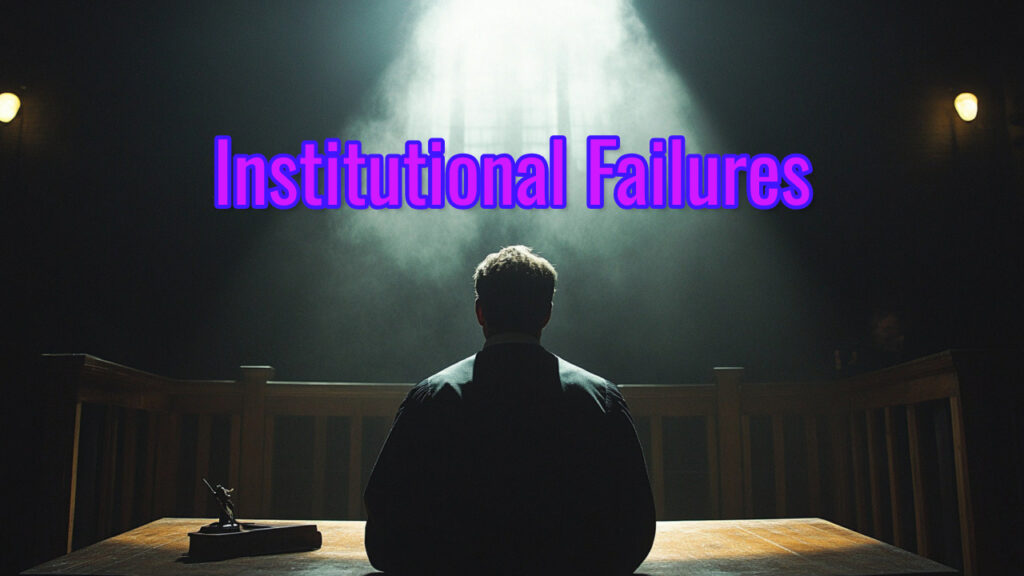
Legal Troubles and Accusations Against Robinson
Robinson’s legal challenges have been a focal point of the narrative surrounding grooming gangs. Critics argue that his imprisonment stems from his controversial statements and actions, particularly regarding court reporting restrictions. However, supporters contend his legal troubles are politically motivated efforts to silence dissenting voices addressing uncomfortable truths. The political landscape complicates the situation further, as seen in opposition to inquiries into the grooming gang scandals by significant political parties, which raises questions about accountability and transparency.
Conclusion of the Examination
The complexities of race, politics, and media representation emerge in examining the grooming gang issue. The sustained silence from many institutions regarding these crimes has led to public outrage and skepticism, particularly toward figures like Robinson. As society grapples with these issues, the need for honest dialogue and accountability continues to be paramount in addressing the injustices faced by victims of grooming gangs.
Key Takeaways:
Grooming Gangs in the UK
- Grooming gangs have been involved in the systemic abuse of young girls in the UK, predominantly targeting vulnerable white British girls.
- Investigations have revealed that these gangs, composed mainly of Pakistani Muslim men, used manipulation, gifts, drugs, and alcohol to exploit their victims, often resulting in gang rape.
- Reports, including those from the Telegraph, indicate that the UK government and police were aware of these activities yet failed to act, allegedly to protect the narrative of a prosperous multicultural society.
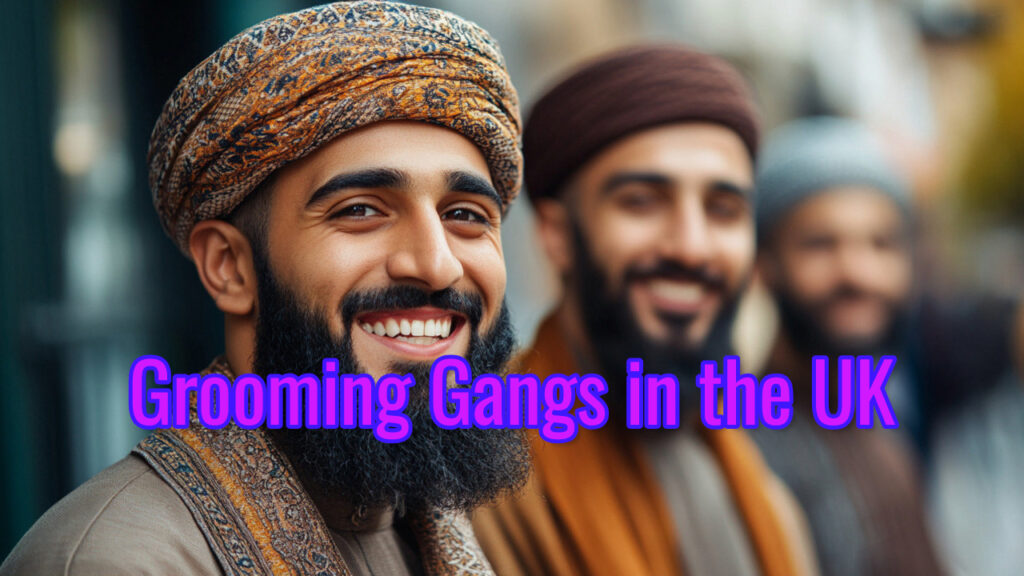
Tommy Robinson’s Role and Controversies
- Tommy Robinson, whose real name is Steven Yaxley Lennon, founded the English Defense League (EDL) in 2009 to raise awareness about grooming gangs, which he claims have been ignored by the mainstream media.
- Robinson has faced multiple legal challenges, including accusations of assault and contempt of court, and claims that his imprisonment is politically motivated, aimed at silencing his criticisms of government inaction regarding grooming gangs.
- Despite being labeled a criminal by mainstream media, supporters argue that Robinson’s activism has brought attention to the abuse of children that authorities were reluctant to address.
Media and Government Response
- The mainstream media, including figures like Piers Morgan, have often criticized Robinson, framing him as a thug and a controversial figure, which some argue distracts from the real issues of child exploitation.
- Reports and court documents have surfaced indicating that local authorities failed to adequately respond to the grooming gang crisis due to fears of being labeled racist, leading to significant exploitation of minors.
- Criticism has also been directed at the Labour Party for voting against a national inquiry into the grooming gang scandal, raising questions about accountability and transparency in handling these cases.
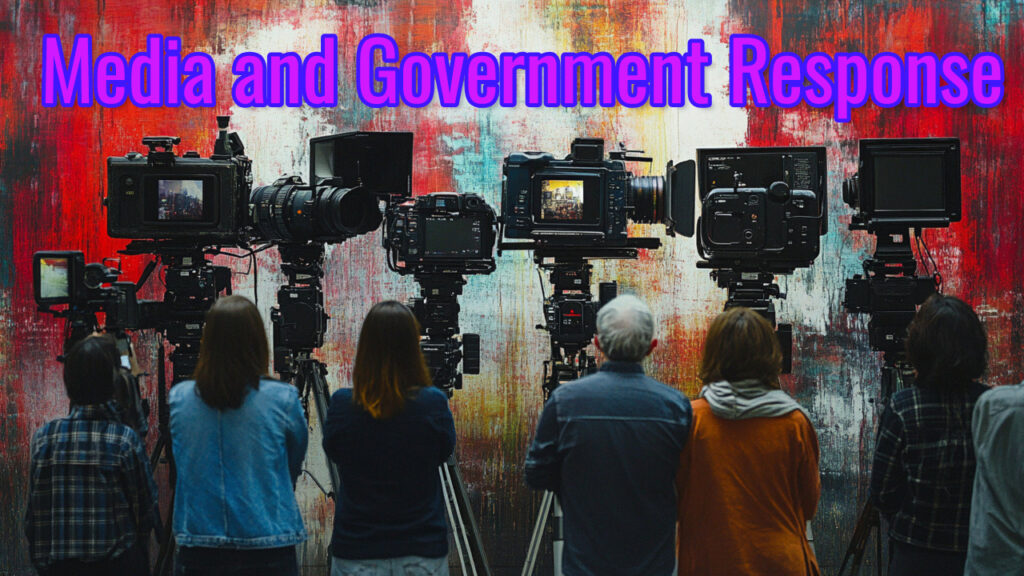
Public Awareness and Reaction
- The public outcry surrounding grooming gangs has grown, with many advocating for greater accountability from law enforcement and government officials regarding their handling of these crimes.
- Some commentators suggest that the controversy surrounding Robinson highlights a broader issue of how society grapples with uncomfortable truths about crime, race, and political correctness.
- The discussion around grooming gangs and figures like Tommy Robinson reflects a profoundly polarized debate about freedom of speech, activism, and the responsibilities of government and media in protecting vulnerable populations.
Thanks for Reading
Steven G Smith

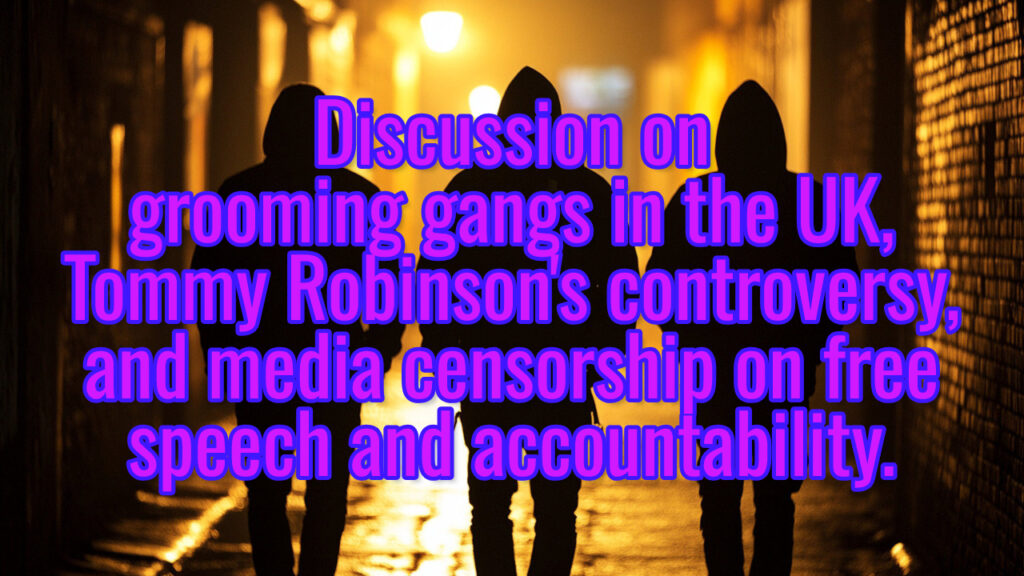
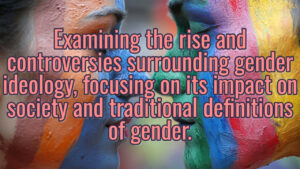

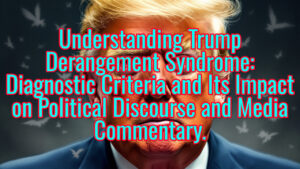
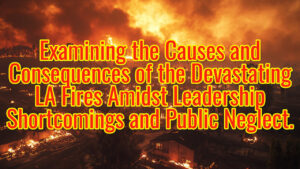
More Stories
Examining the rise and controversies surrounding gender ideology, focusing on its impact on society and traditional definitions of gender.
Canada’s DIRTY SECRET Makes Annexation Inevitable
Ex-Marine Discusses Afghanistan’s Aftermath and Growing Islamist Threat in Britain